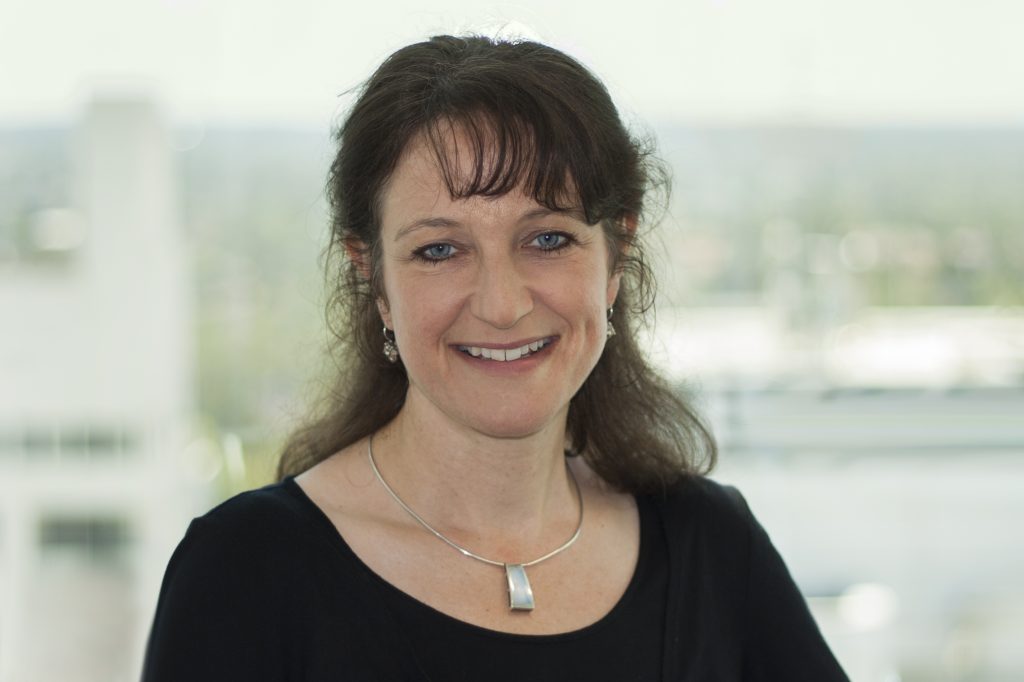
Sally Hudson BSc (Hons), MSc, DIC, CGeol, FGS
Regional Manager and Associate Geotechnical Engineer at Coffey Geotechnics Ltd, a Tetra Tech Company
After nearly 30 years in the geotechnics industry, I have worked on many aspects of ground engineering and currently have responsibility for technical management of a wide range of operations and for design delivery. I have a background in site investigation but have since worked for design consultancies for many years on significant transport and energy infrastructure schemes, and so I am well placed to represent the consultancy sector as part of this important trade association.
What or who inspired you to join the geotechnical industry?
I joined the industry as a young geologist interested in all things sub-surface. One career open to a geology graduate is that in ground engineering, a route I chose and have not looked back. I specialised and further qualified as an engineering geologist and then geotechnical engineer, quickly becoming hooked on finding out about the ground and its behaviours during interaction with the built environment and the associated geo-hazards.
What does a typical day entail?
As Coffey is a specialist geotechnical design consultancy working in all sectors in all corners of the globe, it’s difficult to pin down a typical day. I deal with delivering projects and managing our technical team and workload in almost all aspects of ground engineering. The day can comprise attending design team meetings for major projects, inspecting highway earthworks, reviewing tender designs or looking at in-country health and safety and design risks associated with working on overseas ground investigations.
Are there any projects which you’re particularly proud to have been a part of?
Certainly; High Speed 2 has presented a unique set of challenges for the geotechnical industry to tackle and I have been involved in this prestigious scheme in one form or another since 2012. We have had roles at tender assessing the geodynamic effects of high speed rail traffic on UK soils and how to mitigate this at unprecedented design line speeds, and also the engineering of heave of overconsolidated clay in very deep cuttings.
What are the most challenging aspects of your role?
The main challenge is always the tight timescales imposed on us by many of our clients – either due to them not being aware how much they will need geotechnical specialist input on a tender or design until very late in the day, or due to delay of award date of a scheme but not of the delivery date. This constraint can affect the entire design team, not just in geotechnics.
Another key challenge is trying to ensure that the ground investigation data we rely on so heavily as designers is available in AGS format to those that need it. It is staggering how difficult it often is to obtain the data that we know has been commissioned and produced but has not made it along the chain to those who need it most.
What AGS Working Group(are you a Member of and what are your current focuses?
I have been on the Executive Committee and now the Senate since 2014 and am a member of the Business Practice Working Group. Working with the Marketing Sub-Group we have overhauled the bye-laws and are looking at how to widen the AGS membership. Most recently, I have also joined the newly formed Geotechnical Working Group and have specific focus on addressing key issues such as excavation safety during in-situ tests like permeability and soakaway.
What do you enjoy most about being an AGS Member?
I have followed the AGS since my graduation and from an early stage in my career I have been glad of the advice given in the AGS guidance notes and publications such as the recently revised guidance on the selection of laboratory tests for construction schemes. Now I have the opportunity to help out and return the favour!
What do you find beneficial about being an AGS Member?
I am long-standing member of the geotechnical community and I am always assured that the AGS are there looking out for the interests of all geotechnical and geo-environmental practitioners and promoting best practice and quality. I can access a plethora of advice and guidance documents produced by the AGS for use by all members and for use in educating clients, colleagues and suppliers.
Why do you feel the AGS is important to the industry?
There is no other trade body dealing with the geotechnical and geo-environmental industry as a whole. There is a huge amount of work being done by members of the AGS alongside their day job to promote excellence and safe working practices across the industry. The well-established data format is hugely beneficial and as we deliver more schemes in BIM this format really comes into its own.
What changes would you like to see implemented in the geotechnical industry?
I would like to see greater awareness of the AGS and its activities. Does everyone know there is a legal help line who can assist in advising on tricky contractual matters? I encourage everyone to sign up to the AGS website and talk to your AGS company representative about the benefits of membership. I look forward to seeing you all at the AGS Members’ Day.
This Q&A was included in the January/February issue of the AGS Magazine, which can be viewed here.